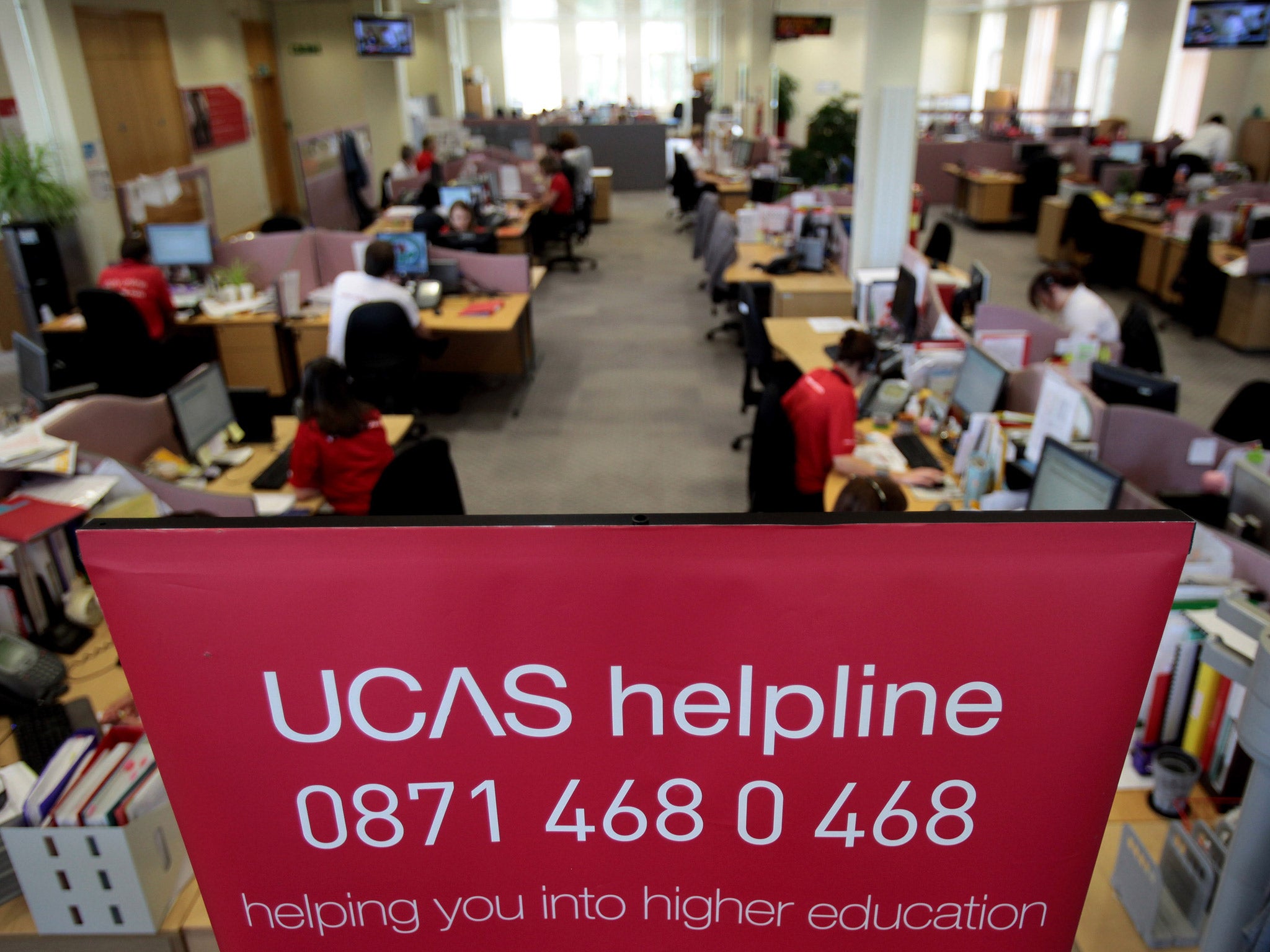Ucas should share its data on students from poor backgrounds so we can get a clearer picture of social mobility
The better the data we have, the more we can do to address inequalities in the future

Your support helps us to tell the story
From reproductive rights to climate change to Big Tech, The Independent is on the ground when the story is developing. Whether it's investigating the financials of Elon Musk's pro-Trump PAC or producing our latest documentary, 'The A Word', which shines a light on the American women fighting for reproductive rights, we know how important it is to parse out the facts from the messaging.
At such a critical moment in US history, we need reporters on the ground. Your donation allows us to keep sending journalists to speak to both sides of the story.
The Independent is trusted by Americans across the entire political spectrum. And unlike many other quality news outlets, we choose not to lock Americans out of our reporting and analysis with paywalls. We believe quality journalism should be available to everyone, paid for by those who can afford it.
Your support makes all the difference.Every year, hundreds of thousands of students apply through Ucas for university, and many join the annual clearing scramble after their A-level results to grab remaining places. In the process, the admissions service collects a wealth of data that researchers would find invaluable in tracking social mobility.
Alan Milburn is right to say that this data should be more freely available to academics. We at the Sutton Trust have worked with Ucas data to compile our reports on the impact of higher tuition fees and the benefit of our access programmes and we look forward to working with Ucas on other projects.
Its data has helped us show that there remains a big access gap, particularly in elite universities, where you are nearly nine times more likely to get a place if you are from a rich neighbourhood. And Ucas itself in recent years has got better at analysing issues like the widening gender gap in admissions.
However, there is much more we can learn about the choices that disadvantaged young people make on higher education with better data. The Ucas database can do a lot to improve what we know about that decision-making process.
We recognise that it can be a tricky issue for Ucas to open its data up more widely. It is entrusted with a lot of personal information that young people provide as part of their university applications. Unless Ucas gets explicit permission from students to use that data for other purposes, it risks losing trust in the applications process.
Striking a balance that explains up front to students that their data could be used to help others gain access to higher education, while improving access to the data for researchers and others keen to narrow the access gap, must be the way ahead.
It is important that all those with access to important data help us understand more about people’s school, university and careers if we are to have a clearer picture of social mobility in Britain.
The better the data we have, the more we can do to address inequalities in the future.
Conor Ryan is director of research at the Sutton Trust
Join our commenting forum
Join thought-provoking conversations, follow other Independent readers and see their replies
Comments